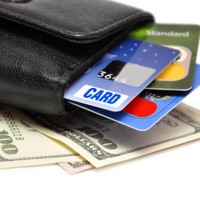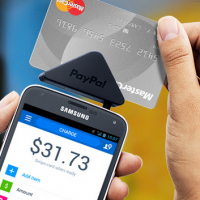
Mistakes that Merchants Make With Merchant Accounts
Article Written by : Manufacturing Strategy
If you have a good amount of customer coming through your doors, you will need to have a merchant account. A merchant account allows you to accept credit card and debit card payment through a credit card terminal. Many business owners will hop right in and sign the first contract they are given without even thinking about it. This is just one popular mistake merchants make when it comes to these types of accounts but there are ways to avoid them
You will need to compare various companies before you sign up with one of them. The best way to check a company out is through the Better Business Bureau. The BBB can let you know if the provider has a history of complaints or if they have complaints that have gone unresolved. Once you have a contract, be sure to read and understand each detail, especially the fine print.
Sure a credit card company representative can provide you with a sales pitch to get you to sign up with their company. But be sure what ever it is that they offer you, that you get it in writing. You certain do not want to be conned into something and then end up with extravagant fees. If an offer sounds to good to be true, it most likely is. If it is true, get in down on paper.
Pay attention to that nasty cancellation fee. This fee is normally an extravagant amount because the company wants to keep you in the contract. The fee is assessed if you cancel your contract early. It is important to remember these tips so you don’t make any mistakes that will cost you money.
How to Fight Credit Card Chargebacks
Article Written by : Merchant Capital Inc
Here is a situation which you may be able to relate with. Jack is the owner of a small floral delivery company in the heart of his downtown neighborhood. He recently subscribed for a merchant account so he could take credit cards as payment. He soon found it was a great decision since his sales went up by 33% in just two weeks. But soon after, jack noticed several credit card chargebacks.
The chargebacks all seemed to be for various reasons. One customer claimed they never received their delivery so they disputed the transaction with their credit card company. Another customer said the flowers were delivered but in rough shape by the time they got to her and still another disputed the charge because the flowers were not what they ordered.
The sad part is that all these claims were frivolous. Jack had a reputation of having high quality floral arrangements as well as a trusted courier for his deliveries. Jack was a victim of customers who wanted something for nothing. If you find yourself in this situation, there are some things you can do to fight credit card chargebacks.
One important step to take is to get a signature for all deliveries made. Be sure the courier is aware of this when he sets out on his deliveries. For customers who claim they never received their delivery, all you need to do is show a copy of the signed delivery receipt. For those who state their delivery was in poor condition upon arrival, showing the part of the receipt stating the customer can receive a refund as long as their return their purchase in a certain amount of time.
You don’t have to let dishonest customers take advantage of you. Stand up for your reputation by proving them wrong!
Three Advantages Mobile Credit Card Processing Bring to Small Business
As businesses become more agile, merchant credit card processing with a mobile component becomes a necessity. Retail businesses can carry stock in a warehouse and deploy in a shipping crate on a busy city street, or at a festival, assuming they have a means to process transactions. It’s not always feasible to go cash only. It makes you a target for theft, and it hurts your potential business from customers who no longer carry cash. As mobile wallets catch on, those people are growing in volume. Here are three reasons why businesses are making the switch.
Connectivity
As internet connectivity becomes ubiquitous, it becomes easier for businesses to bring their locations to the people. Mobile credit card processing allows for merchants to accept payments anywhere they can get connectivity, including over 3 or 4G networks. Coupled with affordable rates, merchants can even use such a system in-store at a mall or a brick and mortar retail location.
It helps retailers better service customers with prompt checkout times and consultation all wrapped up into a single transaction. The only drawback is that the system depends on connectivity. If the Internet goes down, these merchants have a problem. That’s why most systems rely on backups, first looking for Wi-Fi connections and then utilizing mobile connections if Wi-Fi fails.
Affordability
Mobile credit card systems are an excellent choice for small business credit card processing because they often don’t require much additional hardware. Most mobile systems rely on a card reader, which can be clipped onto mobile phones or tablets sales people can carry around. The costs to deploy such a system may not be as high as the costs of a credit card terminal. Plus, the system removes the need for a POS system entirely.
Compatibility
Another reason more businesses are choosing mobile payment systems is because they have become more commonplace. Early technology didn’t encourage multiple devices, so it was hard for retailers to be sure their payment platform could service every customer. Now that Apple and Google have jumped on the mobile wallet band wagon, there are more options than ever to send payments over the Internet.
People have also become a lot more familiar with the technology, encouraging them to try it out for themselves. As more people learn it’s safe to utilize a mobile device for payments, this payment platform will only see improved adoption rates.
Final Thoughts
Retailers can benefit greatly from being on the cusp of innovation in payment processing. When customers can get immediate fulfillment, retail can compete on solid footing with e-commerce.
—————————————————————————————
Charge.com Payment Solutions, Inc. is a payment processing company with mobile and POS solutions for businesses of all sizes.
Tips to Help Find the Right Credit Card Processor
There are many credit card processing services available, and finding the right one isn’t as simple as looking for the lowest rates. Rates can be misleading for a number of reasons, and shouldn’t be the only factor in making such a life changing decision for your business. In this brief guide, we’ll look at some practical tips you can use to find an excellent merchant account that provides the best possible services for your business.
Step One: Figure Out What You’re paying
You want to do your best to avoid junk fees from your merchant service provider. Understand that whoever you work with is going to charge you, often something like an administrative or processing fee, but these shouldn’t contribute much to the rate structure. What adds to your costs are junk fees like annual fees, or monthly minimum penalties. Also, be wary of volume discounts that promise great rates for certain sales quotas. When in doubt, don’t sign onto something you don’t think you can meet.
Step Two: Setup and Accepting Cards
Unless you need serious implementation of your software, setup should be free. Usually the merchant account will provide some system of over-the-phone support to assist you in your store or online. American Express cards shouldn’t add much more than about $.15 to your overall costs, so it may be worth accepting them. Credit card terminals may cost if you want additional features, but are mostly included with the fees you already pay.
Step Three: Risk
If you’re deemed a high risk merchant, some of these rules don’t apply to you. Your rates will be higher than most others, and you may be paying additional fees that appear to be junk, but actually provide some form of insurance to the merchant bank. If you’re in this situation, don’t get discouraged. Talk to competitors and shop for a good rate.
Charge.com Payment Solutions, Inc. provides the solutions for store owners to accept credit cards online or in store.
Too many chargebacks could cost you your merchant account
Article Written by : Credit Card Processing Blog
Chargeback is the term used when a customer disputes a charge on her credit card bill. Generally, chargebacks will happen for one of several reasons:
- A clerical error, such as a customer being double-billed or being billed for an incorrect amount
- Customer dissatisfaction, such as not receiving a product or receiving a product different than what was paid for
- A customer not recognizing a purchase, especially if the merchant name that appears on her bill differs from the actual name of the store
- Fraud — when a customer claims she did not authorize a purchase or a purchase was made as a result of identity theft
For most transactions, customers have 120 days from the sale or when they discovered a problem with the product to dispute a charge.
The bottom line here is that whenever customers feel that they have been charged for something they shouldn’t have, they can file a dispute with their bank which begins the chargeback process. The entire process will be detailed in the next section, but it’s worth noting here that resolving these disputes can sometimes take more than two months — PayPal, for example, advises its merchants that the whole process can take up to 75 days. During this time, the revenue from the disputed sale is withheld from the merchant’s account.
Whenever a chargeback is initiated, a merchant will receive a code from its issuing bank that gives a reason for the dispute. Some of the most common Visa and MasterCard chargeback codes are listed below. Once a customer has disputed a charge, a merchant’s acquiring bank will begin going through a specific procedure to resolve the issue.
If a merchant has too many chargebacks that they loose, they could also use their merchant account and be placed on Terminated Merchant File (TMF), which means that they may not be able to open another merchant account under their own name.




